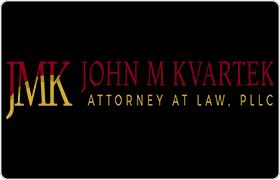Pensacola Felony Lawyer, Florida
Sponsored Law Firm
-
 x
x

Click For More Info:
-
John M. Kvartek, Attorney at Law
100 North Spring St Suite 2 Pensacola, FL 32502» view mapCriminal Defense Law You Can Count On Us
When you are facing legal challenges, you need John M. Kvartek who will review the facts of your case, determine your goals and work towards meeting those goals.
850-912-6122
Not enough matches for Pensacola Felony lawyer.
Below are all Pensacola Criminal lawyers.
Suzanne Noland Whibbs
✓ VERIFIEDSuzanne Whibbs received her undergraduate degree from the Auburn University in 1993. In 1997, she received her J.D. from Cumberland School of Law at S... (more)
John Donovan Whibbs
✓ VERIFIEDIn 2012, Donovan was selected by Florida Super Lawyers as a “Rising Star,” an honor extended to only two and a half percent of Florida lawyers eac... (more)
Gillis E. (Beau) Powell
✓ VERIFIEDBeau was born and raised in Crestview, Florida. In 2006 he graduated from Northwest Florida State College with an Associates Degree in Criminal Justic... (more)
FREE CONSULTATION
CONTACTRoss A. Keene
FREE CONSULTATION
CONTACT John Kvartek Pensacola, FL
John Kvartek Pensacola, FL Practice AreasExpertise
Practice AreasExpertise



